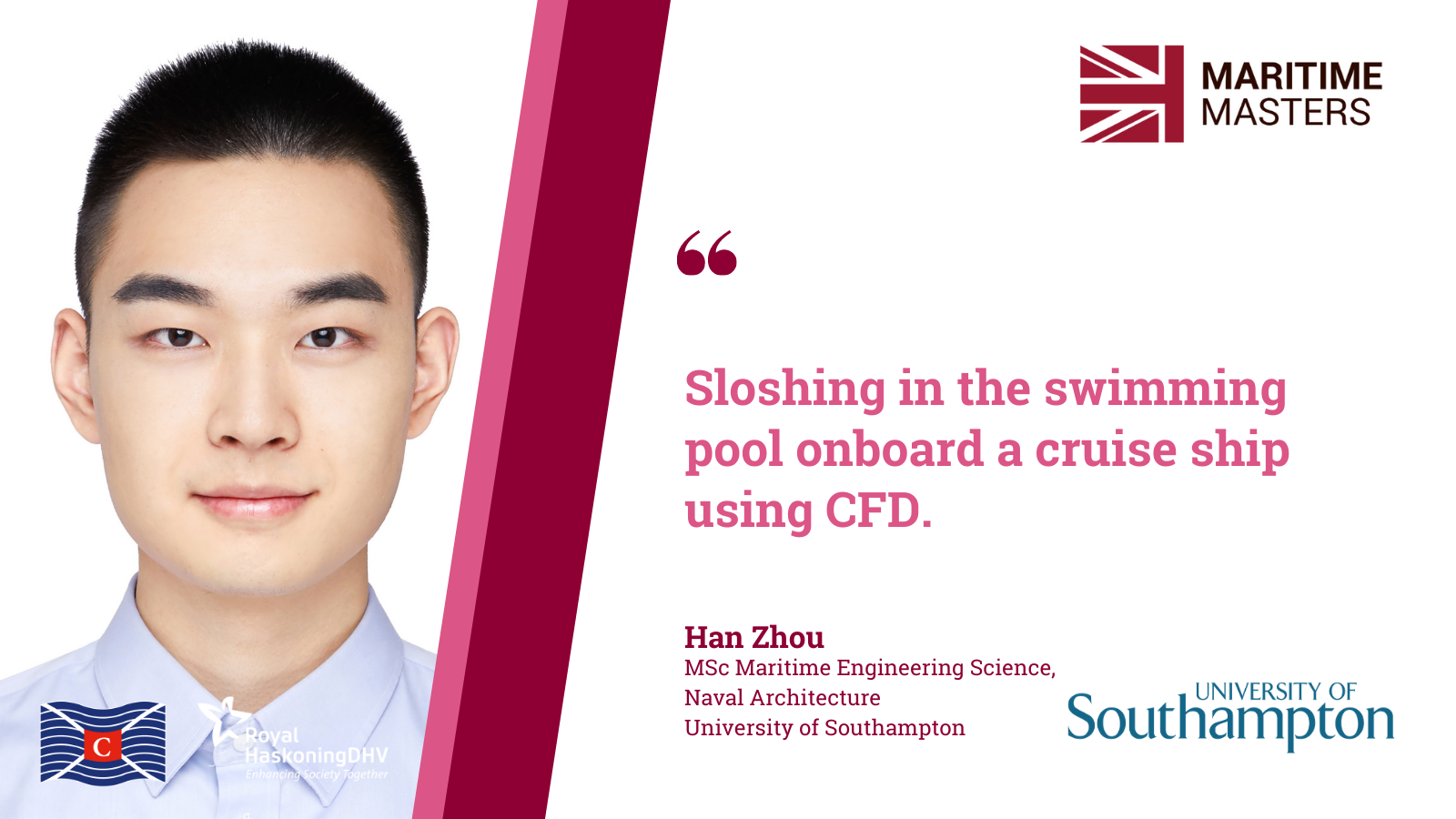Han Zhou

Biography:
I am Han Zhou and I firstly began the study on Naval Architecture as an undergraduate at Jiangsu University of Science & Technology, China, and now is an MSc student of Maritime Engineering Science-Naval Architecture at University of Southampton, UK. I’m mostly interested in fluid-related topics such as ship resistance, propulsion, etc., especially topics related to cruise ships and novel designs on ship resistance and propulsion. Both experiment and CFD are of my interest. By using such methods, I’m hoping to get deeper understandings on how ships work and what can be further improved.
Introduction to research:
Sloshing is a kind of violent fluid dynamic behaviour when a tank is partially filled and subject to an external excitation, especially when the frequency of tank motion is close to the natural frequency of the liquid inside the tank. As the swimming pool is placed on the top deck of a cruise ship, an enlarged sloshing consequence can be caused, which may cause discomfort and risk to pool users. An extreme violent sloshing may also cause stability issues or even ship integrity problems.
Although experiments have been done in past years related to such problems, it is not always possible to do so due to the limitation of high capital cost and inconvenience of experiments. In this research, CFD will be introduced to solve sloshing problems so that the sloshing behaviour of a wider range of pool geometry, suppression devices and sea states can be easily done.
This research will study the effect of passive suppression devices-baffles which have been tested with experiment by Nunes and Hudson (2019) and try to improve the geometry and suppression effect of the baffles. The aim is to minimize the size of the baffles whilst keeping the free surface performance acceptable so that the user experience and safety of the pool can be improved.
The parameters of the CFD simulation used in this research will also be explained and determined in detail so that further researches can be done based on the parameters determined in this research.
What is your interest in or the practical applications of this research?
I’m interested in what kind of sloshing behaviour would have when the cruise ship is cruising at different irregular sea states and how the sloshing behaviour would change due to a different geometry and baffle installed in the pool. I’m also interested in how effective the baffles can be on suppressing the sloshing and what parameters of the baffle can have the greatest influence on suppression effect, this can make me clear on how I can further improve the behaviour of baffles.
By doing this research, hopefully the swimming pool onboard a cruise ship can have a better and safer user experience. For ship owners, it is possible to operate the swimming pool under a single operation mode (Harbour Mode) without decreasing the water depth or close the pool from time to time. The spillage water could be hopefully reduced so that a better deck environment can be provided.
Why did you choose maritime as your area of study and research?
I’ve been interested in maritime engineering for a very long time, especially ship engineering. I’m very interested in how the ship works at sea and how the ship is designed and constructed, as a result, it is my dream to be a ship engineering or researcher someday. By studying maritime engineering, I have got a deep understanding on the ship principles, design theories and methods, and even some more advanced knowledge.
I also think it is very interesting to study fluid dynamics, which seems to be unpredictable but actually it runs with its own principle. It feels great to find out the underlying theory of fluid dynamics and how this is going to affect the ship’s performance.
Moreover, it is interesting to see various of ships operating at sea and study all kinds of difference between different types of ships.
